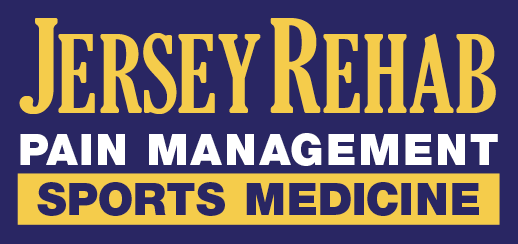Listen to Your Body: Recognizing the Signs of Overtraining
In the pursuit of fitness goals, it’s easy to get caught up in the excitement of progress. You push yourself harder, lift heavier, run farther, and spend more hours in the gym, all in the name of achieving that next personal best. But in this quest for excellence, there’s a fine line between dedication and overtraining. Pushing your body beyond its limits without allowing adequate recovery can lead to overtraining, a condition that not only hampers your progress but can also have detrimental effects on your overall health.
What is Overtraining?
Overtraining occurs when the volume and intensity of your workouts exceed your body’s ability to recover. It’s a state of physical, emotional, and psychological exhaustion that results from excessive exercise without sufficient rest. While a little soreness and fatigue are normal after a hard workout, overtraining takes these symptoms to the extreme, leading to a decline in performance and an increased risk of injury.
The Warning Signs of Overtraining
Recognizing the signs of overtraining is crucial to prevent long-term damage to your body. Here are some common indicators that you may be pushing yourself too hard:
- Persistent Fatigue: Feeling tired after a workout is normal, but if you’re constantly exhausted, even after a full night’s sleep, it could be a sign of overtraining. Persistent fatigue is your body’s way of telling you that it needs more time to recover.
- Decreased Performance: If you notice that your strength, endurance, or speed is declining despite continued training, it might be time to take a step back. Overtraining can lead to a plateau or even a decrease in performance, as your body struggles to keep up with the demands placed on it.
- Frequent Injuries: Overtraining can weaken your immune system and make you more susceptible to injuries. If you’re dealing with recurring injuries, such as muscle strains, joint pain, or stress fractures, it’s a red flag that you’re pushing your body too hard without giving it adequate time to recover.
- Insomnia or Poor Sleep: Paradoxically, overtraining can lead to sleep disturbances. You might find it difficult to fall asleep or stay asleep, despite feeling exhausted. Poor sleep quality can further exacerbate the symptoms of overtraining, creating a vicious cycle.
- Mood Changes: Overtraining doesn’t just affect your body; it can also take a toll on your mental health. If you’re feeling irritable, anxious, or depressed, it could be a sign that your nervous system is overstressed. These mood changes can be a direct result of hormonal imbalances caused by overtraining.
- Loss of Appetite: While exercise typically stimulates hunger, overtraining can have the opposite effect. If you find that your appetite has decreased or you’re losing weight unintentionally, it could be a sign that your body is under too much stress.
- Weakened Immune System: If you’re catching colds or getting sick more often than usual, it might be due to overtraining. Intense exercise without proper recovery can weaken your immune system, leaving you more vulnerable to illness.
- Elevated Resting Heart Rate: An elevated resting heart rate, especially when combined with other symptoms, can be an indication of overtraining. Your heart rate might be higher than usual even when you’re not exercising, as your body struggles to cope with the stress of overtraining.
How to Prevent Overtraining
Preventing overtraining is all about balance. Here are some strategies to help you stay on track with your fitness goals without pushing your body to the brink:
Listen to Your Body: Pay attention to how your body feels during and after workouts. If you’re feeling unusually fatigued or experiencing any of the signs mentioned above, it’s important to take a break and allow your body to recover.
Incorporate Rest Days: Rest is just as important as exercise. Make sure to schedule regular rest days into your workout routine to give your muscles time to repair and rebuild. Active recovery, such as light stretching or walking, can also help keep your body in balance.
Vary Your Workouts: Doing the same workout day after day can lead to overtraining specific muscle groups. Vary your workouts to target different muscles and prevent overuse injuries. Incorporating activities like yoga, swimming, or cycling can also provide a break from high-intensity training.
Stay Hydrated and Eat a Balanced Diet: Proper nutrition and hydration are essential for recovery. Make sure you’re fueling your body with enough calories, protein, and nutrients to support your training. Dehydration can exacerbate the effects of overtraining, so drink plenty of water throughout the day.
Get Enough Sleep: Sleep is when your body does most of its repair work. Aim for 7-9 hours of quality sleep each night to allow your body to recover fully from your workouts. If you’re having trouble sleeping, consider adjusting your workout intensity or timing.
Monitor Your Progress: Keep track of your workouts, including intensity, duration, and how you feel afterward. This can help you identify patterns and recognize when you might be pushing too hard.
Seek Professional Help: If you’re unsure about how to balance your workouts or are experiencing symptoms of overtraining, consider consulting with a fitness trainer or healthcare professional. They can help you create a training plan that meets your goals without risking your health.
When to Seek Help
If you suspect that you’re overtraining and the symptoms persist despite adjusting your routine, it’s important to seek professional help. Overtraining can lead to more serious health issues if left unaddressed, including chronic fatigue syndrome and other long-term conditions.
In conclusion, while the drive to improve and excel in your fitness journey is admirable, it’s crucial to recognize when your body is signaling that it needs rest and recovery. Overtraining can not only halt your progress but also lead to serious health issues if not addressed in time. By listening to your body, incorporating rest, and seeking professional guidance when needed, you can achieve your fitness goals without compromising your well-being. Remember, progress is not just about how hard you push—it’s also about how well you recover.
At Jersey Rehab, we specialize in helping athletes and fitness enthusiasts recover from injuries and prevent overtraining. Our team of experienced professionals can assess your condition and develop a personalized recovery plan that gets you back on track safely. Don’t let overtraining derail your progress—contact us today to schedule a consultation and learn how we can help you achieve your fitness goals while maintaining optimal health.

